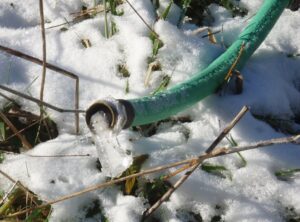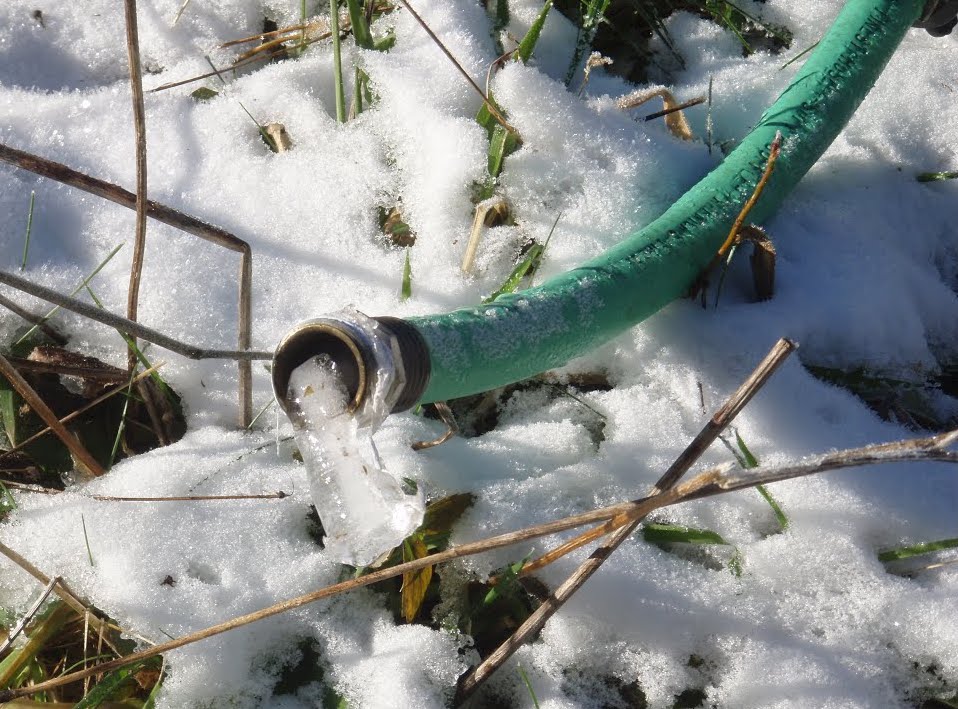

Removing hoses before the temperature drops below freezing is just one tip to help prepare your home for winter (Photo courtesy of Unsplash Media)
Although the weather has been fairly mild for November, the cold, frigid winter is fast approaching. While the temperatures are fairly moderate, there are some tips to follow to prepare your home for the cold we know will be here quickly.
One thing that is important to do prior to freezing temperatures is to protect your water pipes from damage. Water pipes should remain at a temperature of 65 degrees which is why plumbers recommend wrapping your pipes to protect them. Locate all water shutoff valves so that you can quickly turn off the water supply should there be an emergency. A burst pipe can cost as much as $3,000 in damage while pipe insulation costs around 50 cents a linear foot. If you don’t’ feel you can wrap your pipes yourself, contact a local plumber, many of which offer winterization services.
Don’t forget your outdoor water sources as well. Drain and store garden hoses before the first frost. Shut the water supply off to the hose bib, then turn the faucet on to drain any standing water. Just shutting off the supply could lead to water standing in the pipes which may cause damage.
Check the insulation in your attic. If there is missing insulation or it was never installed, you will want to do that before the weather turns cold. Insulation keeps the heat inside your home rather than drifting into the attic. This not only keeps your interior more comfortable, it can also lower your energy costs.
Fireplaces, chimneys and heating equipment should be inspected annually. The Consumer Product Safety Commission reports that those are the biggest causes of home fires which is why you need to have them serviced every year by a licensed professional. If you have a fireplace, be sure the inspector looks at the chimney as brick sometimes needs upkeep so that water does not leak in. The cap should also be inspected as that keeps animals from getting into your chimney.
In older homes, you may need to remove all screens and install glass storm windows to add an extra layer of insulation. Storm windows can also protect your interior from damage during blowing and freezing rain as well as heavy snow. Even newer homes with double-paned windows may need additional insulation if they are older and in need of replacement.
The roof of your home is an important part of the exterior, not just because it keeps the elements outside your home, but also to reduce your energy costs. If you have loose, missing or damaged shingles, repairs should be made before the temperature drops below freezing. Keep in mind that snow can be heavy and this could lead damaged shingles to shift even more. This could result in water and moisture seeping into your attic. If you cannot replace shingles yourself, contact a local roofing company to assist you.
You also want to be sure your gutters are free of debris as clogged gutters can lead to standing water. The water can freeze, leading to ice dams that push the roofing material up, causing damage. Check the tree limbs over your house and if any seem to be dead or damaged, remove them as well. Heavy snow and ice can cause the limb to snap, leading to roof damage.
These tips can help you protect your home from damage during the winter months that could become costly.
RELATED STORIES:
Share this Post



